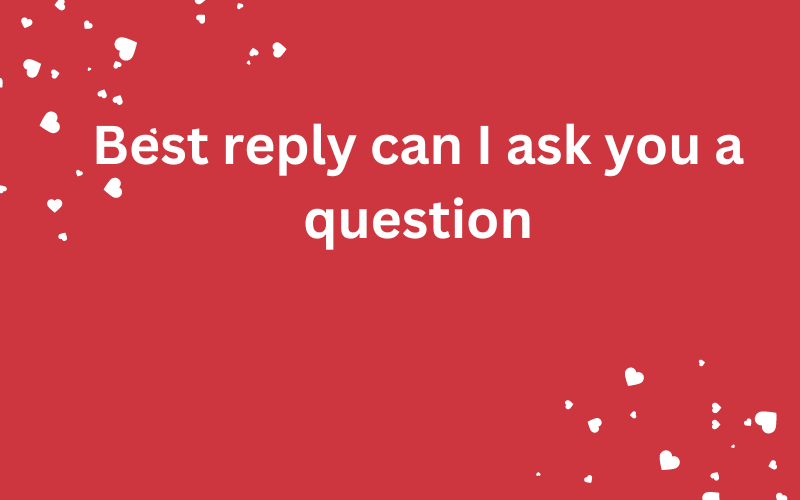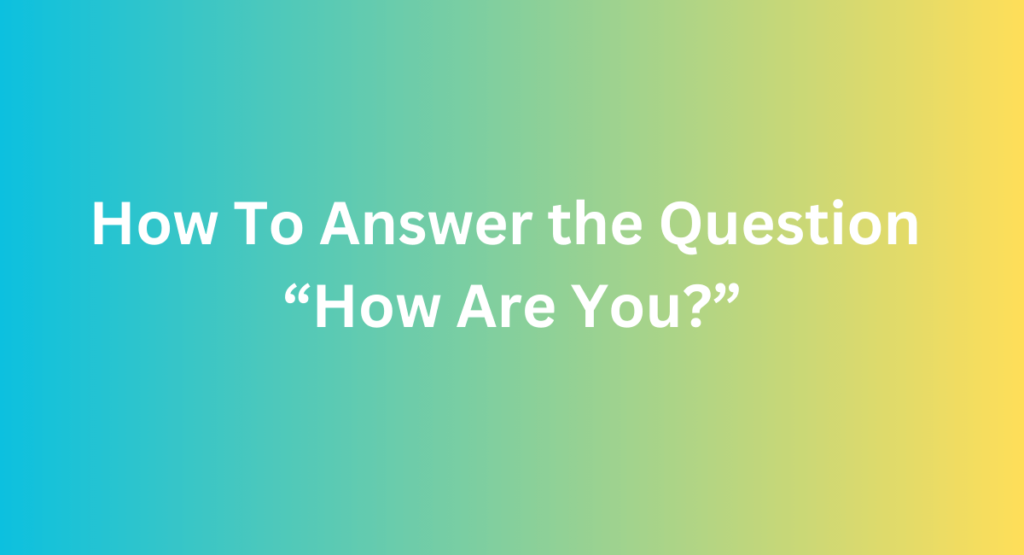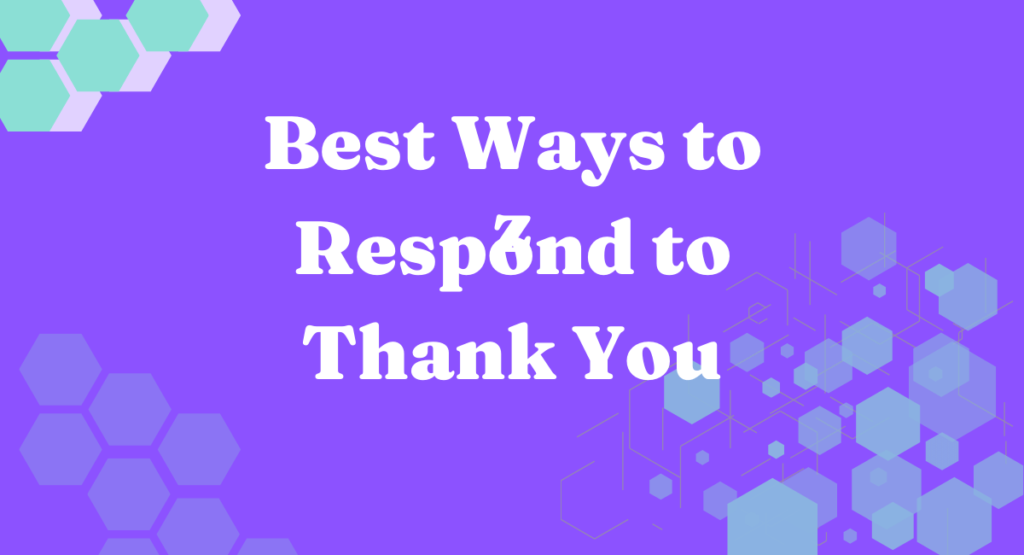Sure, please feel free to ask your question. When someone asks “Can I ask you a question?”
A polite reply could be “Of course, go ahead” or “Absolutely, I’m here to help. ” The question itself may vary from personal queries to seeking clarifications. In a formal setting, it’s essential to respond in a respectful and approachable manner.
Clear communication is crucial when addressing questions, as it allows for better comprehension. Responding with an open and accommodating attitude fosters positive interactions and can lead to more fruitful discussions. It’s important to maintain a polite and professional tone while being receptive to inquiries. By approaching questions with openness, it creates an environment that encourages dialogue and understanding. Engaging with questions respectfully fosters healthy communication and demonstrates an amiable disposition.
20 Common Reply
1. “Certainly! Ask away, I’m all ears.”
2. “Of course! Fire away with your question.”
3. “Absolutely, feel free to ask me anything.”
4. “Sure thing! I’m ready for your question.”
5. “Yes, go ahead! I’m here to answer your questions.”
6. “I’m all ears! Ask me anything you’d like.”
7. “Certainly! What’s your question?”
8. “Absolutely, I’m open to any questions you have.”
9. “Yes, you can. Ask me anything!”
10. “I’m ready for your question. Go ahead!”
11. “Of course! Ask me whatever you’re curious about.”
12. “Sure, feel free to ask me your question.”
13. “I’m ready and waiting! Ask your question whenever you’re ready.”
14. “Absolutely! Ask me your question whenever you’re ready.”
15. “Yes, go ahead and ask your question.”
16. “Certainly! I’m here to answer any questions you may have.”
17. “Of course! I’m curious to hear what you want to ask.”
18. “Yes, please feel free to ask me your question.”
19. “Absolutely! What’s on your mind?”
20. “Sure thing! I’m here, ask your question whenever you’re ready.”
Casual Response
– “Of course! Shoot away, what’s on your mind?”
– “Sure thing! What do you want to know?”
– “Absolutely! Ask me anything, I’m all ears.”
– “Hey, go for it! What’s your question?”
– “Definitely! What’s up? What do you need?”
– “Yeah, go ahead! I’m ready for your question.”
– “Hey, no problem at all! What’s your question?”
– “Sure, fire away! What do you need help with?”
– “Absolutely, ask me anything you’d like!”
– “Hey! I’m all ears, what’s your question?”
Polite Response
– “Certainly, feel free to ask your question. I’m here to help.”
– “Of course, I’m happy to answer any questions you may have. What’s on your mind?”
– “Absolutely, I’m here for any questions you might have. Please go ahead.”
– “Certainly, ask away. I’m ready to assist in any way I can.”
– “Of course, I’m open to any questions you may have. What would you like to know?”
– “Certainly, feel free to ask your question whenever you’re ready.”
– “I’m here to help. Ask your question, and I’ll do my best to assist you.”
– “Certainly, I’m at your disposal. What’s the question you’d like to ask?”
– “Absolutely, I’m here to assist you. What would you like to inquire about?”
– “Please, go ahead and ask your question. I’m here to provide any information you need.”
Friendly Response
– “Of course! Ask me anything, I’m here to help!”
– “Absolutely! Fire away with your question, I’m all ears.”
– “Hey, no problem at all! What’s on your mind? Ask away!”
– “Sure thing! Feel free to ask, I’m ready for your question.”
– “Absolutely, go ahead and ask. I’m here for you!”
– “Hey, I’m here and ready! What’s your question?”
– “Yes, please do! I’m ready for any questions you have.”
– “Hey, sure! Ask away, and let’s get that question answered.”
– “Absolutely, I’m here and curious to know what you want to ask!”
– “Hey! Ask me anything – I’m here to help with your question.”
Importance Of A Well-thought-out Response
A well-thought-out response is crucial when someone asks, “Can I ask you a question? ” It sets the tone for meaningful communication and demonstrates respect for the other person’s curiosity. Crafting a thoughtful reply can lead to a productive conversation and strengthen the relationship.
Conveying Understanding
A well-thought-out response is crucial in various situations, especially when someone asks, “Can I ask you a question?” It is essential to convey understanding through your reply to make the other person feel heard and valued. By acknowledging their query and showing that you are open to hearing what they have to say, you establish a foundation of mutual respect and empathy.
When someone seeks your permission to ask a question, it’s important to respond in a way that conveys your understanding and willingness to engage with them. By using phrases like “Sure, go ahead” or “Of course, I’m here to help,” you let the person know that you respect their curiosity and value their perspective.
Establishing Trust And Rapport
Building trust and rapport in any interaction is crucial, and a well-thought-out response plays a significant role in this process. When someone asks if they can ask you a question, your reply can set the tone for the rest of the conversation. By responding with open-mindedness and attentiveness, you establish trust and rapport from the very beginning.
To establish trust, it’s important to offer a safe space for the person to ask their question. Assure them that their question is valid and that you are willing to engage with it sincerely. This initial show of trust and openness encourages the other person to feel comfortable sharing their thoughts, concerns, or inquiries, ultimately leading to a more fruitful and meaningful conversation.
Remember, a simple “yes” or “no” response may not be enough to establish trust and rapport. Adding a friendly tone and expressing genuine interest in their question helps create a warm and welcoming environment for open dialogue.
Crafting An Engaging And Relevant Question
Crafting an engaging and relevant question is crucial for fostering meaningful conversations. By asking thought-provoking questions, you can encourage others to share their perspectives and create a more interactive and dynamic environment.
Considering The Context
When crafting an engaging and relevant question, it’s essential to consider the context in which you are asking. Understanding the background, situation, and the person you are addressing is crucial for formulating a question that captures their interest and elicits a meaningful response.
Focusing On The Speaker
Another important aspect of crafting an engaging and relevant question is focusing on the speaker. Consider what topics or areas of interest the person might have, and tailor your question accordingly. By aligning your question with their interests, you increase the likelihood of them being enthusiastic and providing an engaging response.
Ensuring Clarity
Ensuring clarity in your question is vital to make it easy to understand and provide a relevant response. Avoid using jargon, complex language, or convoluted sentence structures. Instead, opt for simple and clear wording to ensure that your question is easily comprehensible by all.
Here are some additional tips to follow when crafting engaging and relevant questions:
- Keep the question concise and to the point.
- Use open-ended questions to encourage elaboration and thoughtful responses.
- Avoid asking leading or biased questions that might influence the speaker’s answer.
- Consider the purpose of your question and how it relates to the overall conversation or topic.
Remember, a well-crafted question can spark curiosity, lead to meaningful discussions, and create a positive engagement with the person you’re conversing with. By considering the context, focusing on the speaker, and ensuring clarity, you can craft an engaging and relevant question that grabs attention and promotes dynamic conversation.
Responding With Empathy And Openness
When someone reaches out and asks, “Can I ask you a question?” responding with empathy and openness can lead to fostering a deeper connection. It’s essential to approach the conversation with sincere acknowledgment and understanding, creating a safe space for the individual to express themselves. Here are some effective ways to navigate the situation.
Active Listening
Engage in active listening by giving the person your undivided attention. Focus on their words and non-verbal cues, reflecting back to show you understand and care about their concerns. This approach promotes a sense of being heard and valued.
Acknowledging Feelings
Express empathy by acknowledging the emotions behind their question. Using phrases such as “I can understand why that might be on your mind” or “It sounds like this is important to you” demonstrates a genuine understanding of their feelings and experiences, fostering a supportive atmosphere.
Providing Thoughtful And Insightful Answers
When someone asks you a question, it’s an opportunity to provide them with thoughtful and insightful answers that can offer valuable perspectives and enrich their understanding. By drawing from personal experience and offering different viewpoints, you can engage in meaningful conversations and provide meaningful responses that resonate with the question at hand.
Drawing From Personal Experience
Sharing insights based on personal experiences is invaluable when providing thoughtful answers. Personal stories and anecdotes can often convey impactful messages and relate to the questioner’s situation. When drawing from personal experience, it’s important to ensure that the anecdotes are relevant to the question and provide meaningful insights that address the query effectively.
Offering Different Perspectives
Offering different perspectives allows for a well-rounded approach to answering questions. By presenting various viewpoints, you can broaden the questioner’s understanding and encourage critical thinking. This approach not only enriches the conversation but also demonstrates empathy and consideration for diverse viewpoints, fostering a more comprehensive and inclusive dialogue.
Concluding With Follow-up Questions
When someone asks “Can I ask you a question? ” The best reply is to say “Sure, go ahead!” It shows openness and encourages further conversation.
When engaging in a conversation, it’s important to show continued interest by concluding your response with follow-up questions. Not only does this keep the conversation flowing, but it also demonstrates that you are actively listening and interested in what the other person has to say. Let’s explore two ways you can conclude your reply with follow-up questions: Showing Continued Interest and Encouraging Further Discussion.
Showing Continued Interest
One effective way to conclude your reply is by showing continued interest. After answering the initial question, you can ask the other person for their opinion or experiences related to the topic. This can help spark further discussion and show that you value their input. For example:
“Sure, please go ahead. I’d love to hear your thoughts on this as well. What do you think about [specific aspect of the topic]?”
Encouraging Further Discussion
Another way to conclude your reply is by encouraging further discussion. This can be done by asking open-ended questions that invite the other person to elaborate on their question or share more details. By doing so, you create an opportunity for a deeper conversation. Consider using prompts such as:
- “Could you provide more context or examples?”
- “I’m curious to hear your perspective on this topic. Can you expand on why you’re interested in it?”
- “Do you have any additional questions or concerns related to this?”
By concluding with follow-up questions, you not only show your engagement in the conversation but also encourage the other person to share more of their thoughts and insights. This can lead to a more meaningful and fruitful discussion for both parties involved.
Frequently Asked Questions For Best Reply Can I Ask You A Question
How Do You Reply To Can I Ask You A Question?
Certainly, go ahead and ask your question.
What Do You Reply When Someone Says I Have A Question?
When someone says, “I have a question,” you can reply, “Certainly, what’s on your mind? “
How Do You Answer Can I Ask You A Personal Question?
Sure, go ahead. But please keep in mind that I may choose not to answer if it’s too personal.
Why Do We Say Can I Ask You A Question?
The phrase “Can I ask you a question? ” Is used as a polite way to seek permission before posing a query. It is done to show respect and consideration for the person being asked.
Conclusion
To effectively respond to the question “Can I ask you a question? “, it is best to be polite and open. Some appropriate replies could be “Of course, go ahead” or “Absolutely, I’m here to help. ” By maintaining a friendly and approachable manner, you can encourage open communication and ensure that the person feels comfortable asking their question.
Remember, creating a welcoming environment fosters better engagement and understanding.



